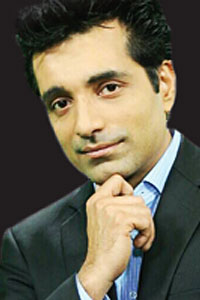The military government's controversial 16-point proposal for the Meechai Ruchupan-led Constitution Drafting Committee (CDC) that many see as an attempt to hold on to power has left pro-democracy supporters feeling anxious.
The highlight which was to be put in the revised charter draft is a special mechanism, referred to by Prime Minister Prayut Chan-o-cha in his interview with the media on Tuesday, that is to handle the country's post-election crisis and ensure that the elected government follows reform guidelines implemented by his administration. In the prime minister's words, the mechanism may be in the form of a panel and the proposed tenure is for about five years.
We have to applaud CDC president Mr Meechai for -- at least on the face of it -- dismissing this particular idea.

The negative response prompted key cabinet minister and legal guru, Wissanu Krea-ngarm, to put pressure on the committee. He warned that the CDC must take responsibility for not including the proposal in the new charter if the country is plunged into crisis. This is nothing but an arm-twisting tactic for the CDC to comply with the military regime's demands.
Even without such provisional clauses, it already looks like it will be difficult for the draft charter to be passed in the referendum, scheduled for July 31. With the controversial clauses, the chances of the draft surviving the process are nil. If that is the case, it means another 3 billion baht to hold the referendum will go down the drain -- a complete waste.
To a layman like myself, all these things point to only one thing: the military regime has no intention of letting go of power. Looking back, when Gen Prayut and the National Council for Peace and Order (NCPO) seized control in a bloodless coup on May 22, 2014, some politicians told me they believed the military would cling to power longer than their predecessors. Now, the prime minister's act confirms this belief.
Not to mention that we are behind with the roadmap time frame. Due to the endless charter drafting (the first draft by the Borwornsak Uwanno-led CDC was rejected by the now-defunct National Reform Council, with the second version by the Meechai-led CDC), the election has been put off time and again.
That the people are giving Gen Prayut the benefit of the doubt and allowing him to extend the roadmap does not mean they will accept his prolonged stay, holding power above an elected government.
His plans to stay on for a period of five years after the 2017 elections would also mean he would oversee the formation of at least two governments, one in 2017 and the other in 2021, if the first completes a four-year term. After nearly two years in power, it is high time that the military realises that the paramount issue at the moment is that it should look at ways to make a graceful exit.
The military government should face up to this fact. It has not been able to do much in the 20 months it has been in full control. Economically, the country continues to stumble along and blame is being placed on the challenging global economy. Come to think of it, even in the so-called "global financial crisis", the country's economy was in relatively good shape partially due to good management of investment, consumption and exports. Meanwhile, exports for January posted their worst showing with an 8.91% drop year-on-year, the 13th consecutive monthly decline.
Apart from an unimpressive economic performance, the military government hasn't fulfilled many of its promises, in particular those involving national reform and reconciliation. This is a fact, even though supporters of the People's Democratic Reform Committee under Suthep Thaugsuban may think otherwise.
It is my hope that the CDC will be firm and not accept the proposal. Otherwise, the country will go backward politically. What we want to see most at this moment are gestures that the military regime will honour its promise with the roadmap.
With no major achievements to boast of, what the all-powerful leader should think about is what the best exit strategy is. Because the longer you stay in power, the higher the chance you will be challenged. And if history is any guide, a leader should look back and learn the lessons from those strongmen before him who were eventually defeated when the people decided to exercise their power.
Umesh Pandey is Asia Focus editor, Bangkok Post.
